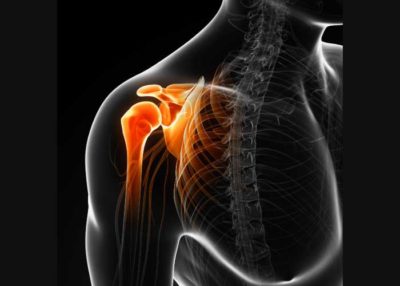Rotator Cuff Specialist

Do you participate in sports or activities that involve throwing or lifting overhead? If so, you may be at risk of sustaining a rotator cuff injury or developing rotator cuff tendinitis. A rotator cuff injury is typically caused by repeated overhead motions that cause degeneration. Rotator cuff injuries can also be caused by a fall, or sports injury. Rotator cuff injury specialist, Doctor Riley J. Williams provides diagnosis as well as surgical and nonsurgical treatment options for patients in Manhattan, Brooklyn, New York City and surrounding areas who are experiencing a rotator cuff injury. Contact Dr. Williams’ team today!
What is a rotator cuff injury?
The four muscles and tendons that cover the top portion of the upper arm (humerus) are called the rotator cuff. This muscle group allows for shoulder range of motion while providing stability by keeping the ball of the humerus firmly within the socket of the shoulder (glenoid). Because of this extensive flexibility, it is common for the rotator cuff to be injured or torn. Damage to the rotator cuff can result from a sports-related injury, a fall on an outstretched hand, or age-related degeneration of the tendons. These types of injuries can range from mild inflammation of the tendons to partial tearing, to complete tearing of the tendons from their attachment site. Dr. Riley J. Williams, orthopedic shoulder specialist serving patients in Manhattan, Brooklyn, New York City, NY and surrounding areas, has the knowledge and understanding, as well as substantial successful experience in treating patients who have experienced a rotator cuff injury.

What is rotator cuff tendinitis?
Rotator cuff tendinitis describes inflammation of the rotator cuff tissues; this condition is also sometimes called subacromial impingement syndrome. Rotator cuff tendonitis is one of the most common causes of shoulder pain. Continued rubbing of the rotator cuff tendons against the acromion (top of the shoulder joint) results in inflammation within the subacromial space, bursitis and thickening of the rotator cuff tendons. This is common among athletes who perform repetitive overhead movements in sports like swimming, volleyball, tennis, and throwing.
What are the symptoms of a rotator cuff injury?
The most common complaint of a rotator cuff injury is pain within the shoulder joint. Other symptoms include:
- Sharp pain with activities involving reaching overhead or behind the back
- Radiating pain from the shoulder into the arm
- Worsening pain at night, especially with sleeping on the affected shoulder
- Shoulder weakness
- Difficulty lifting the arm
How is a rotator cuff injury diagnosed?
Dr. Williams will obtain a comprehensive medical history and physical examination to differentiate between a rotator cuff injury, rotator cuff tear, and rotator cuff tendinitis. Diagnostic tests, including x-rays, ultrasound, and magnetic resonance imaging (MRI), are needed to identify damage to the structures within the shoulder joint.
What is the treatment for a rotator cuff injury or tendinitis?
Non-surgical treatment:
Mild rotator cuff injuries and tendinitis are often successfully resolved with conservative treatments. A sling might be applied for immobilization of the shoulder joint to eliminate overhead movements and decrease inflammation of the rotator cuff tendons. A combination of rest, ice, and anti-inflammatory medications are also recommended. When the pain and inflammation have diminished, completion of a physical rehabilitation program is oftentimes recommended for strengthening the muscles and tendons of the rotator cuff.
Surgical treatment:
In more severe rotator cuff injuries, or if conservative therapy is unsuccessful, Dr. Williams may recommend a shoulder arthroscopy (minimally invasive surgical procedure) to treat the rotator cuff. Any irregularities, such as bone spurs or tears, are removed and repaired with specialized surgical instruments. Decompression of the subacromial space should eliminate further irritation of the rotator cuff tendons against the acromion (roof of the shoulder). This minimally invasive approach uses a few small incisions around the shoulder; this limited approach allows patients to return to their normal activities in a shorter period of time. Slings are used briefly (5-7 days); and physical therapy is typically needed for about 6-8 weeks.
For more information on rotator cuff injuries, rotator cuff tears, rotator cuff tendinitis, or the excellent treatment options available, please contact the office of Dr. Riley J. Williams, an orthopedic shoulder specialist serving Manhattan, Brooklyn, New York City, NY and surrounding areas.